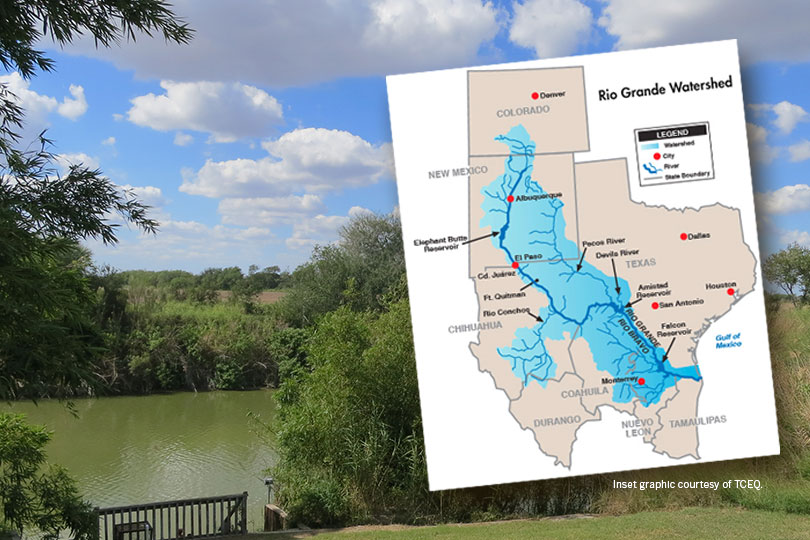By Shelby Shank
Field Editor
The allocation and distribution of the Rio Grande’s waters have been a source of contention between Texas, New Mexico and Colorado for over a decade. But a recent move in the courts could ensure proper distribution of the Rio Grande’s resources moving forward.
A Special Master appointed by the U.S. Supreme Court issued a ruling in favor of the states and asked the court to approve a settlement reached last fall by the parties involved.
The case began over 10 years ago when Texas filed a complaint against New Mexico alleging the state violated the Rio Grande Compact of 1939. Under the Rio Grande Compact, New Mexico and Colorado are responsible for meeting certain delivery obligations to ensure water from the Rio Grande is delivered to Texas.
“New Mexico has, contrary to the purpose and intent of the Rio Grande Compact, allowed and authorized Rio Grande Project water intended for use in Texas to be intercepted and used in New Mexico,” Texas’ complaint stated.
The compact between Colorado, New Mexico and Texas was created to protect the integrity and operation of the Rio Grande Project, ensuring the shared rights of the Rio Grande resources between the three states.
Under the compact, Colorado is required to deliver water from the river at the Colorado-New Mexico state line in preset quantities determined by river flow measured by stations in several locations.
New Mexico is obligated to deliver water to the Elephant Butte Reservoir for Texas’ use based on river flow.
Texas alleges New Mexico has repeatedly violated its obligations under the compact, depleting water available to users in Texas and causing “grave and irreparable injury to Texas.”
“The Rio Grande is the primary, at some places the only, source of supply for agricultural lands within Texas that are the intended beneficiaries of Texas’ allocation of Rio Grande water,” Texas’ complaint stated. “In addition, the Rio Grande Project water supply constitutes, on average, 50% of the annual water supply for the city of El Paso.”
The consent decree was first announced by the Office of the Attorney General in November 2022 and depends on approval by the U.S. Supreme Court. The multistate agreement guarantees Texas receives its water while also allowing the State of New Mexico the flexibility to properly control the groundwater pumping that draws water from the Rio Grande.
The federal government has continued to object to this crucial settlement. If the U.S. Supreme Court overrules the Biden administration’s objection, the Court would then enter the Consent Decree proposed by the states.
“Simply put, the Consent Decree resolves the dispute over the Texas and downstream New Mexico apportionments and protects the Texas apportionment . . . against New Mexican actions. . . . [I]t is difficult to envision a resolution to this matter that might be superior to the Consent Decree [that Texas seeks],” the Special Master stated in the ruling.
To read the full ruling, click here.
To read the addendum referenced in the ruling, click here.

